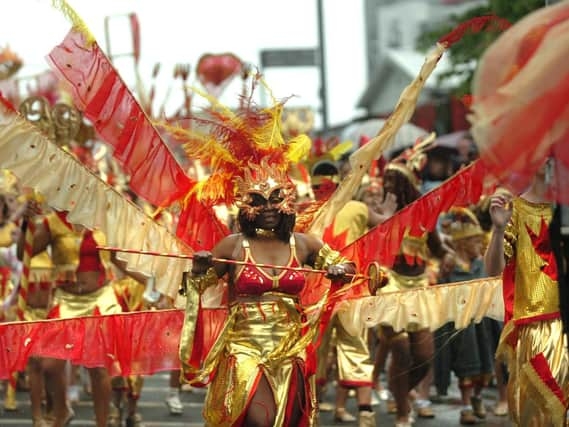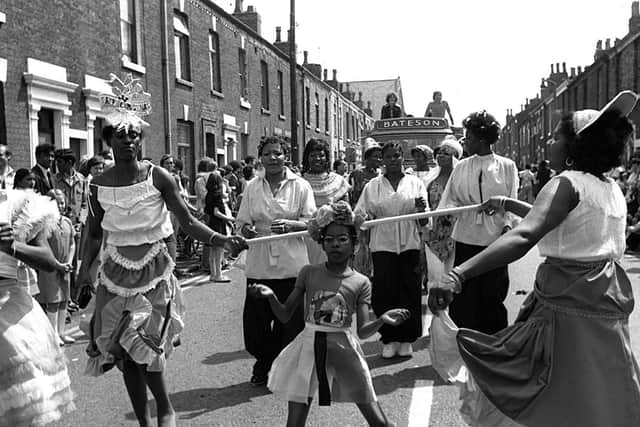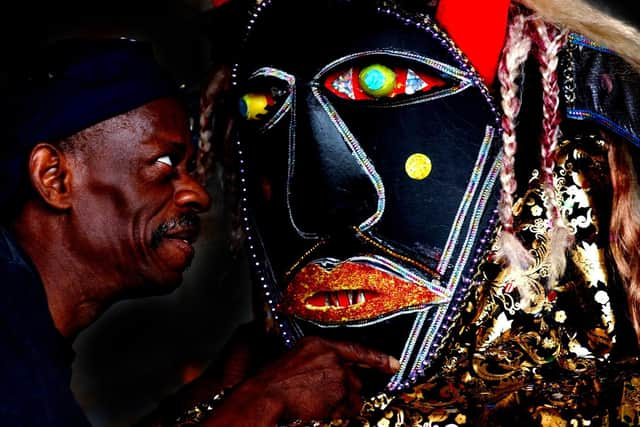Preston Caribbean Carnival: heritage, community, and digital celebrations in lockdown life


Attracting thousands of visitors every year, the carnival sadly had to be postponed this year as a result of the coronavirus pandemic, but with a free virtual carnival scheduled for August and the promise of a bigger and better edition next year, things are nevertheless looking up.
Started by the Windrush generation, Preston Caribbean Carnival quickly became a cultural touchstone for both the Caribbean and general community alike. With a stong Caribbean influence in Preston epitomised by the city's Caribbean clubs and by the presence of West Indian cricket greats plying their trade at Lancashire League clubs, the carnival is - along with the Windrush Festival - the city's standout Caribbean event.
Advertisement
Hide AdAdvertisement
Hide Ad"I've been going to the carnival for the last 10 years, I love it," says Judith Hamilton, who is on the carnival's organising committee. "It was the music which initially attracted me, and seeing the costumes and how the Caribbean girls dance was amazing; as someone with two left feet, it took my breath away! You were always made to feel so welcome and everyone was always so happy."


With food stalls, headdress-making workshops, dance troupes, steel pans, live music, costumes, and a grand procession, carnival is an expression of Caribbean heritage, explains Judith. "Carnival gives the younger generations from Caribbean backgrounds that opportunity to tap into their roots and gives them something to be proud of," she explains."Heritage is so important and carnival is a crucial touchstone.
"It's one of the few events which is completely community-run, so the main thing is to encourage community involvement not just amongst the Caribbean community, but everybody," adds Judith, who is from Preston and works in property development. "You don't have to be Caribbean to enjoy carnival!"
Despite welcoming around 4,000 to 5,000 people to Moor Park on the Sunday alone, sourcing funding for the carnival is still a 'struggle' every year, according to Judith. "As the years have gone by, getting funding has become harder and harder," she says. "We don't have much of a cushion, which is why this year we were going for something different."
Advertisement
Hide AdAdvertisement
Hide AdSet to host a music festival as part of the carnival, this year's edition was supposed to feature the likes of Luciano, Tippa Irie, Little Roy, and local reggae band Zamaica. But due to the pandemic, everything - including a sportsman's dinner with former West Indies fast bowler Colin Croft - had to be cancelled.


"It was a real shame as everybody was really looking forward to it," Judith says. "Fortunately, the artists are allowing us to carry our deposits over to next year and they've committed to playing, so we're hoping to go bigger and better. We've got an extra year to put into the planning, so fingers crossed it will allow us to reinvent ourselves and come back with a bang."
In lieu of in-person revelry, organisers are putting on a free virtual carnival hosted by BBC Radio Lancashire's Graham Liver on August 9th across Facebook, Twitter, YouTube, and their own website. Artists who we due to perform at carnival have recorded sets, and local dance troupes are going to perform live, with organisers also putting out an appeal to people to send in any pictures of video clips of past carnivals via social media to be featured in the virtual celebration (all submissions must be made before July 10th).
"Being closely involved in organising the carnival, the amount of preparation which goes into the event amazes me," says Judith. "I didn't realise how much funding was needed; I was gobsmacked. But it just shows the resilience of the community: we're determined.
"It's always been a community event, organised for the community by the community," she adds. "And we're going to keep it that way."
Comment Guidelines
National World encourages reader discussion on our stories. User feedback, insights and back-and-forth exchanges add a rich layer of context to reporting. Please review our Community Guidelines before commenting.